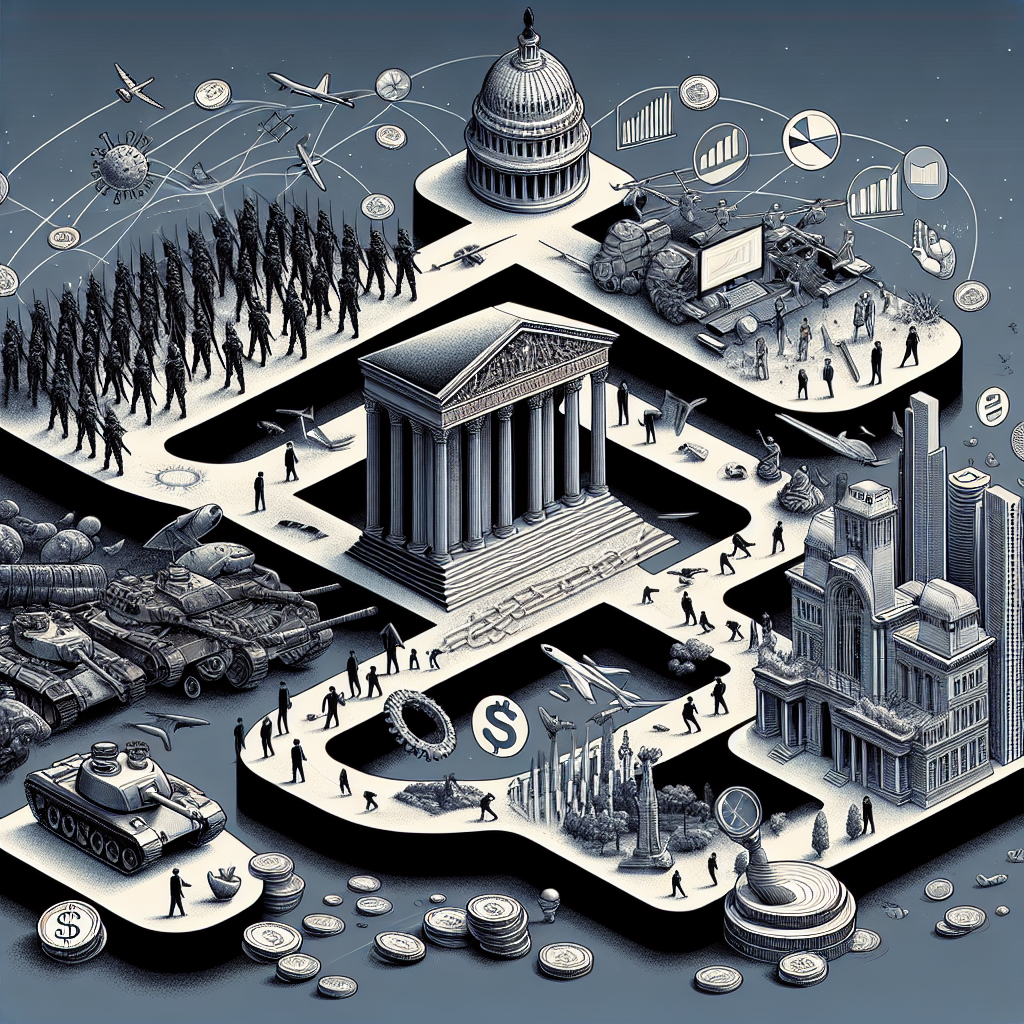The Interwoven Paths of War, Finance, and Innovation: US Government and University Collaborations
The Interwoven Paths of War, Finance, and Innovation: US Government and University Collaborations
Introduction
The intricate relationship between war, finance, and innovation has long been a driving force behind technological advancements. This dynamic is particularly evident in the collaborations between the US government and universities, where research and development efforts are often intertwined with national security and economic interests.
Historical Context
Throughout history, the US government has partnered with academic institutions to foster innovation, especially during times of conflict. These collaborations have led to significant technological breakthroughs that have shaped modern society.
- World War II: The Manhattan Project, a collaboration between the government and universities, led to the development of nuclear technology.
- Cold War: The space race spurred advancements in aerospace and computing technologies.
- Post-9/11 Era: Increased focus on cybersecurity and defense technologies.
Current Collaborations
Today, the partnership between the US government and universities continues to thrive, focusing on emerging technologies that have both military and civilian applications.
- Artificial Intelligence: Research initiatives aimed at enhancing national security and economic competitiveness.
- Biotechnology: Innovations in health and defense sectors, including pandemic preparedness.
- Quantum Computing: Efforts to maintain technological superiority in computing power.
Challenges and Opportunities
While these collaborations offer numerous benefits, they also present challenges that need to be addressed to maximize their potential.
- Ethical Concerns: Balancing innovation with ethical considerations, particularly in AI and biotechnology.
- Funding and Resources: Ensuring sustained investment in research and development.
- Intellectual Property: Navigating the complexities of ownership and commercialization of innovations.
Conclusion
The collaboration between the US government and universities remains a cornerstone of technological advancement, driving innovation that impacts both national security and economic growth. By addressing the challenges and leveraging opportunities, these partnerships can continue to shape the future of technology and society.




































